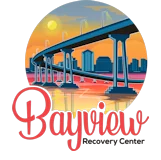OCD and Addiction Treatment in San Diego, California
Racing thoughts that won’t stop, rituals that consume hours of your day, and the temporary relief that comes from a drink or pill, this dangerous combination affects nearly one in three people with obsessive-compulsive disorder. When OCD and addiction collide, they create a cycle where each condition feeds the other, making recovery seem impossible.
This article explores why these conditions so often occur together, how they reinforce each other, and the proven treatment approaches that can break the cycle. You’ll discover the specific ways OCD symptoms drive substance use, effective strategies for managing both conditions, and how integrated treatment offers hope for lasting recovery.
Understanding OCD and Addiction
Yes, there’s a strong link between OCD and addiction. People with obsessive-compulsive disorder face nearly four times the risk of developing substance use problems compared to those without OCD. This connection affects roughly one in three individuals with OCD, making it far more common than most people realize.
Obsessive-compulsive disorder involves unwanted, intrusive thoughts that create intense anxiety, paired with repetitive behaviors aimed at reducing that distress. Addiction, on the other hand, centers on compulsive substance use despite harmful consequences. Both conditions hijack similar brain circuits responsible for impulse control and decision-making.
At Bayview Recovery Center in San Diego, California, we’ve witnessed how these two conditions often feed off each other, creating a cycle that’s particularly challenging for men to break. The shame surrounding both mental health struggles and addiction can prevent men from seeking help until the situation becomes critical.
Recent research from the National Institute of Mental Health shows this dual diagnosis affects men differently than women, often manifesting through alcohol use as a way to quiet racing thoughts or reduce the anxiety that drives compulsive behaviors.
How OCD Manifestations Overlap With Substance Abuse
The overlap begins with a simple but dangerous equation: intrusive thoughts plus temporary relief equals repeated use. When someone with OCD discovers that alcohol or drugs can quiet their mental chaos, even briefly, it creates an immediate connection between substance use and symptom relief.
Both conditions share the element of compulsion, though they serve different masters. OCD compulsions aim to prevent imagined disasters or reduce anxiety, while addiction compulsions seek the reward or relief that substances provide. Yet both create that same feeling of being trapped in behaviors you can’t control. Here’s where the lines blur:
- Intrusive thoughts: OCD creates unwanted mental loops about contamination, harm, or mistakes, while addiction generates persistent thoughts about using substances
- Ritual behaviors: OCD might involve checking locks repeatedly, while addiction develops routines around obtaining and using substances
- Temporary relief: Both provide short-term anxiety reduction that reinforces the behavior
- Loss of control: Both conditions make people feel powerless to stop unwanted behaviors
What makes this particularly tricky is that the temporary relief from substances can actually worsen OCD symptoms over time. As tolerance builds, the anxiety returns stronger, creating more severe obsessive thoughts and compulsions.
Causes and Risk Factors for OCD and Addiction
Genetics and family history
Family history plays a significant role in both conditions. If your parents or siblings have anxiety disorders, OCD, or addiction, your risk increases substantially. Research indicates both conditions run in families, though having the genetic predisposition doesn’t guarantee you’ll develop either condition—or that you won’t benefit from early support such as anxiety treatment.
The same brain chemistry variations that make someone prone to obsessive thinking can also make them more susceptible to addiction. Specifically, differences in how your brain processes serotonin and dopamine can affect both mood regulation and reward processing.
Psychological stressors
Chronic stress acts like gasoline on both conditions. Work pressure, relationship problems, financial strain, or major life changes can trigger OCD symptoms in vulnerable individuals. When those symptoms become unbearable, substances often seem like the only available relief.
The pandemic created a perfect storm for this combination. Isolation, uncertainty, and health fears triggered OCD symptoms in many people, while simultaneously increasing alcohol and drug use as coping mechanisms. Emergency departments reported significant increases in both OCD-related visits and substance use disorders during 2020-2022.
Trauma and environmental influences
Childhood trauma significantly increases the risk for both conditions. Abuse, neglect, or witnessing violence can alter brain development in ways that make both obsessive thinking and addictive behaviors more likely. Environmental factors like growing up in a chaotic household or having easy access to substances compound these risks.
Military veterans represent a particularly vulnerable population, with combat trauma often triggering both OCD symptoms and substance use as coping mechanisms. The combination creates additional challenges in civilian life and relationships.
Compulsive Behaviors in Addiction: What Makes it Different From OCD
The key difference lies in what drives the behavior. OCD compulsions stem from an overactive alarm system in the brain that signals danger where none exists. Addiction compulsions come from changes in reward pathways that make substances feel necessary for normal functioning.
Brain imaging reveals that OCD primarily affects circuits involved in error detection and anxiety, while addiction mainly impacts reward and motivation pathways. However, both mental disorders can alter the prefrontal cortex, the brain region responsible for decision-making and impulse control. While both conditions involve compulsive behaviors, the driving forces differ significantly.
How Compulsive Behavior and Addiction Affect Daily Life
The combination creates cascading problems across every area of life. Relationships suffer as compulsive behaviors consume time and emotional energy that could be spent with family and friends. Partners often feel helpless watching someone they love struggle with seemingly irrational fears while battling substance dependence.
Work performance typically declines as both conditions demand significant mental resources. OCD rituals can make completing tasks efficiently nearly impossible, while addiction affects reliability and judgment. Many men report feeling trapped between maintaining their professional image and managing overwhelming internal struggles.
Physical health deteriorates from multiple directions. Substances damage organs and systems while OCD-related stress weakens immune function and disrupts sleep patterns. The combination often leads to neglecting basic self-care, creating additional health complications.
- Financial impact: Money flows toward substances while productivity decreases
- Social isolation: Shame about both conditions leads to withdrawal from support systems
- Legal consequences: Substance use can result in DUI charges or other legal problems
- Family strain: Children and spouses often develop their own anxiety and behavioral problems
OCD and Addiction Treatment
Recovery from both OCD and addiction is possible with proper treatment and support. The key lies in addressing both conditions simultaneously rather than treating them as separate problems. Our comprehensive treatment approach recognizes that lasting recovery requires treating the whole person, not just individual symptoms. Studies have proven that Integrated treatment approaches achieve success rates of 60-70% for maintaining sobriety while significantly reducing OCD symptoms
Cognitive behavioral therapy with exposure techniques
Exposure and Response Prevention (ERP) therapy works by gradually exposing people to anxiety-provoking situations while preventing the compulsive response. For dual diagnosis, therapists modify this approach to address both OCD triggers and substance use cues simultaneously.
The process involves creating a hierarchy of feared situations, starting with less anxiety-provoking scenarios and gradually working up to more challenging ones. Success rates range from 60-80% for OCD symptoms when combined with addiction treatment approaches and evidence-based methods such as cognitive behavioral therapy in San Diego.
Medication management
Selective serotonin reuptake inhibitors (SSRIs) like sertraline and fluoxetine effectively treat OCD symptoms and may reduce cravings in some people with addiction. However, medication management becomes more complex with dual diagnosis, as interactions between OCD medications and addiction treatments require careful monitoring.
Naltrexone, commonly used for alcohol addiction, shows promise for reducing compulsive behaviors in both conditions. This dual benefit makes it particularly valuable for co-occurring disorders, though individual responses vary significantly.
Integrated outpatient and inpatient programs
Bayview Recovery Center’s men’s treatment programs address both conditions through comprehensive treatment plans that include individual therapy, group sessions, and medication management when appropriate. Our approach recognizes that men often experience different symptoms and face unique barriers to seeking help.
Breaking the Cycle: Steps to Manage Co-Occurring Disorders
Treating both conditions simultaneously produces better outcomes than addressing them separately. Integrated programs recognize that OCD symptoms often trigger substance use, while substances can worsen OCD symptoms during withdrawal periods.
Identifying triggers
Recognizing what situations, emotions, or thoughts trigger both OCD symptoms and substance cravings represents the first step toward recovery. Common triggers include work stress, relationship conflicts, or specific environments associated with past substance use.
Keeping a simple daily log helps identify patterns. You might notice that OCD symptoms spike during certain times of day, leading to increased cravings for alcohol or drugs. This awareness allows for planning alternative responses before triggers occur.
Building a support network
Recovery from dual diagnosis requires multiple layers of support. Professional treatment teams provide clinical expertise, while peer support groups offer understanding from others with similar experiences. Family and friends provide emotional support, though they may benefit from education about both conditions.
Support groups specifically for dual diagnosis can be particularly valuable. Organizations like NAMI (National Alliance on Mental Illness) offer resources and connections to others managing both conditions simultaneously.
Creating a relapse prevention plan
Effective prevention plans address both conditions, recognizing that a setback in one area can trigger problems in the other. Plans typically include early warning signs, coping strategies, emergency contacts, and specific steps to take when symptoms worsen.
The plan might include techniques like mindfulness meditation for managing intrusive thoughts, regular exercise for reducing overall anxiety, and structured daily routines that provide stability while reducing opportunities for substance use.
OCD and Addiction FAQs
How common is it for someone to have both OCD and addiction issues?
Approximately 25-40% of people with OCD also struggle with substance use disorders, making it one of the most frequently occurring combinations of mental health conditions.
Can treating OCD help reduce substance abuse problems?
Yes, effectively managing OCD symptoms often reduces the need for self-medication, which can significantly decrease substance use and cravings.
What types of therapy work best for people with both OCD and addiction?
Integrated treatment approaches combining Exposure and Response Prevention (ERP) therapy with addiction counseling show the highest success rates for dual diagnosis.
Does medication for OCD affect addiction recovery?
SSRIs used for OCD treatment are generally safe in addiction recovery and may actually help reduce cravings in some individuals.
How does Bayview Recovery approach treatment for men with both conditions?
Bayview Recovery uses integrated treatment plans that address both conditions simultaneously through specialized men’s programs, combining therapy, medication management, and peer support tailored to male-specific needs and challenges.
Dual Diagnosis Treatment for Men is Available in San Diego, CA
Long-term management of OCD and addiction involves developing healthy coping strategies, maintaining regular therapy appointments, and staying connected with support networks through aftercare programs. Many people find that recovery from addiction actually helps them better manage OCD symptoms, as substances no longer interfere with therapeutic interventions.
At Bayview Recovery Center in San Diego, CA, we’ve witnessed men transform their lives by addressing both conditions together. With proper support and evidence-based treatment, breaking free from the cycle of OCD and addiction becomes not just possible but achievable. Contact us today to start your healing journey.

Alyssa is a licensed Clinical Social Worker and received her Master’s degree from San Diego State University. She has experience working with individuals in recovery of all ages for over eight years. Alyssa has also worked with at-risk homeless foster youth transitioning into independent living along with the families in the neonatal intensive care unit at UCSD.
